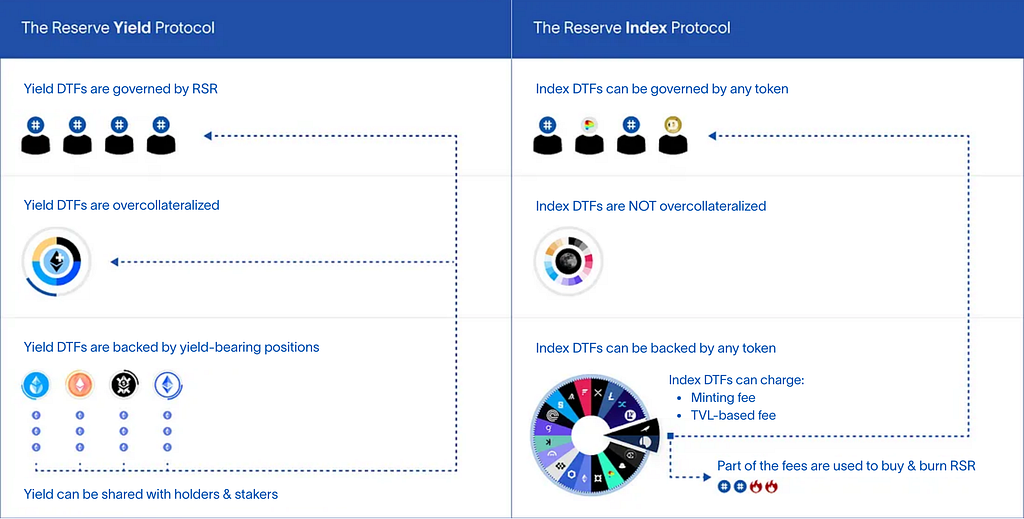Vote Locking on Reserve
A new way to participate, govern, and earn through Reserve’s growing ecosystem

nagaking
May 05, 2025
3 min read
With the launch of Index DTFs, Reserve now offers a new, powerful way to participate in the ecosystem — vote-locking governance tokens, including Reserve Rights (RSR).
Vote-locking lets token holders steer index operations and, in the process, creates new value streams for vote-lockers & RSR.
Here, we’ll walk through what vote-locking looks like, how it diverges from staking, and why it matters for RSR holders.
What is vote-locking?
 Govern & earn from Index DTFs by vote-locking on app.reserve.org
Govern & earn from Index DTFs by vote-locking on app.reserve.org
Vote-locking commits tokens to a specific Index DTF to gain voting power over how that DTF operates. To prevent abuse, tokens can only be unlocked after a delay, usually one week after initiating withdrawal.
Through token-weighted voting, lockers can weigh in on decisions like:
- Which tokens the index includes
- How tokens are weighted and/or rebalanced
- Which fees are charged
- Who can propose and/or veto changes
By vote-locking, anyone can gain direct influence over these choices — and potentially earn a share of the fees the Index DTF generates.
What tokens can be vote-locked?
Index DTFs can be governed by any token. Often that token is RSR, but it can be any token chosen by the DTF’s creator: an existing governance token, a new token created for the DTF, or any other compliant token on the blockchain.
Regardless of the choice, each Index DTF pays a platform fee that is automatically used to buy and burn RSR. So, no matter what token is used, Index DTF activity still adds fuels to the RSR fire.
Staking vs. vote-locking
 Two paths, one goal. RSR staking earns yield in exchange for governance and security. Vote‑lockinggrants voting power and a share of DTF fees. Each route benefits RSR holders through distinct mechanisms.
Two paths, one goal. RSR staking earns yield in exchange for governance and security. Vote‑lockinggrants voting power and a share of DTF fees. Each route benefits RSR holders through distinct mechanisms.
With the launch of vote-locking, the Reserve ecosystem now supports two complementary governance models tailored to each type of DTF.
For Yield DTFs, RSR staking earns yield in exchange for governance and security. Stakers pledge RSR as emergency first-loss capital while managing a DTF’s configuration and collateral. Learn how to stake RSR here.
For Index DTFs, vote‑locking grants voting power and, when enabled, a share of minting and TVL‑based fees. Index DTFs are not overcollateralized, so vote‑locking serves purely as a governance commitment.
How to vote-lock
Locking takes seconds on Reserve app page: just select the Index DTF you want to support, scroll to Basket Governance, and hit the Lock button.
For a click-by-click walk-through, watch the video below and vote‑lock with confidence.
Time to lock in
Whether you’re already staking RSR or just exploring the protocol, vote-locking gives you a direct voice in the future of decentralized index design. It’s an opportunity to back the strategies you believe in — and to help shape the way onchain portfolios evolve.
Ready to lock in?
- Visit any Index DTF’s page on app.reserve.org
- Scroll down to Basket Governance to vote-lock tokens
- Check the Governance tab to explore proposals
If you have any questions along the way, drop into the Reserve protocol Discord server — there’s always someone around to help!














